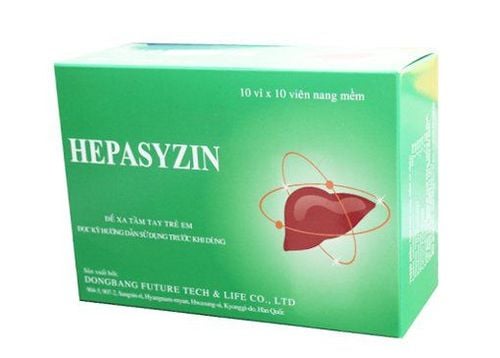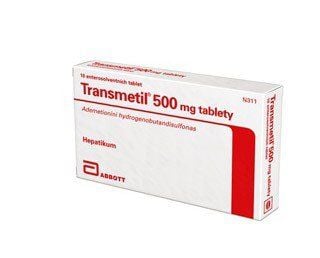This is an automatically translated article.
Phytomenadione is a drug belonging to the group of minerals and vitamins. The drug has the main ingredient is Phytomenadione - a type of vitamin K, is prepared in the form of solution for injection, ampoules 10mg / 1ml. The following article will help you better understand the uses and how to use Phytomenadione properly.1.Indications for taking Phytomenadione
Phytomenadione drug is indicated for use in the following cases:
Patients with bleeding. Patients are at increased risk of bleeding due to hypoprothrombinemia. Bleeding cases due to treatment with Coumarin-type drugs. Patients reduce vitamin K in the following pathological cases: Cholestasis, liver disease, intestinal disease or after long-term treatment with broad-spectrum antibiotics, sulfonamides or derivatives of salicylic acid.
2. Uses
Phytomenadione is a vitamin of group K, an important component of the liver enzyme system that synthesizes clotting factors such as prothrombin (factor II), factors VII, IX and X, proteins C and protein S.
School In patients treated with anticoagulants such as Coumarin, vitamin K is expelled from this enzyme system, reducing the production of clotting factors.
3.Dosage - How to use
For mild bleeding or at risk of bleeding: The dose is 10 - 20mg intramuscularly. If there is no response within 8-12 hours, a larger dose may be used. In case of severe bleeding due to cholestasis or other causes: Dosage for injection, slow intravenous infusion 10mg to 20mg Phytomenadion. In case of gastrointestinal bleeding or cerebral hemorrhage, life-threatening: Transfuse fresh blood or plasma with phytomenadion. With bleeding or risk of bleeding in neonates and premature births. Prophylactic dose: 0.5 - 1mg intramuscularly immediately after delivery. The therapeutic dose is 1mg/kg, intramuscularly, for 1-3 days. In case of acute poisoning with oral anticoagulants. Dosage is slow intravenous infusion 10 - 20mg Phytomenadion, then converted to oral form. Monitor prothrombin values every 3 hours until blood clotting returns to normal.
4.Contraindications to using Phytomenadione
Patients who are allergic or hypersensitivity to Phytomenadion or any of the excipients of the drug. Intramuscular injection is contraindicated in cases of high risk of bleeding.
5. Drug interactions
When using many different drugs at the same time, there may be drug interactions that are detrimental to the patient. Therefore, you need to inform your doctor about the medications you are taking and your medical history to avoid this phenomenon. The following interactions should be noted:
Dicoumarol and its derivatives have an antagonistic effect on vitamin K. Anticoagulants. Other drugs such as: Gentamycin and Clindamycin .
6. Side effects when using drugs
At therapeutic doses, Phytomenadione is well tolerated. However, the process of using Phytomenadione, patients may still encounter side effects such as:
Digestive disorders; Nausea, vomiting; Hot flushes; Sweating; Hypotension; Dizzy ; Allergy; Anaphylaxis; Taste change. Phytomenadione is a vitamin of group K that is used to treat bleeding cases or cases with a high risk of bleeding. Although it is a vitamin, this is a prescription drug prescribed by a doctor, patients should not use it on their own, but need to contact directly with a doctor or a qualified person to have a suitable prescription, ensuring safety for the patient. health. If you have any further questions regarding Phytomenadione, contact your doctor or go to the nearest medical center for answers.













